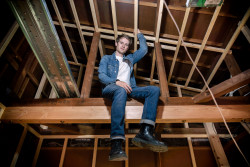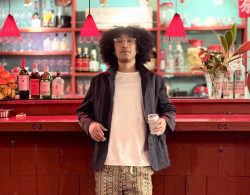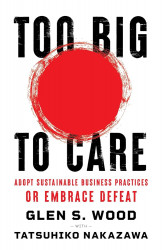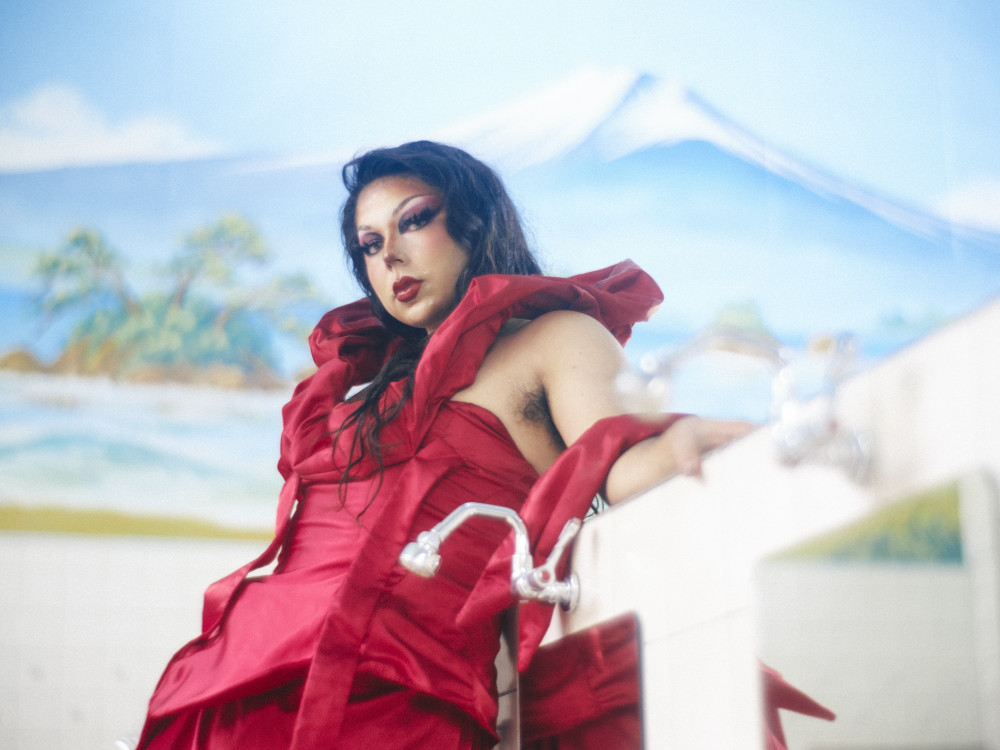
September 24, 2024
How Drag Queen Labianna Is Changing Sex Ed in Japan
Blending drag and sexual education
This article was originally published as “Based in Japan: Labianna Pinklady Joroe, Blending Drag and Sexual Education“ in Metropolis Magazine, “Wellness,” Autumn 2024. Read the full issue here.
In a city that is innovative yet conservative, Labianna stands at the forefront of a vibrant cultural movement, using her art to illuminate and educate. Through her artistry, the Brazil-born drag queen is a transformative force redefining the boundaries of entertainment and education in Japan.
While many shy away from discussing sexual wellness, Labianna’s performances spark meaningful conversations. She challenges taboos and encouraging audiences to explore their understanding of intimacy and consent. Her shows are more than entertainment; they’re a bold invitation to rethink the narratives around sexuality in a way that feels both powerful and personal.
“I want my audience to leave my shows with something to think about,” she says at the start of her interview with Metropolis.
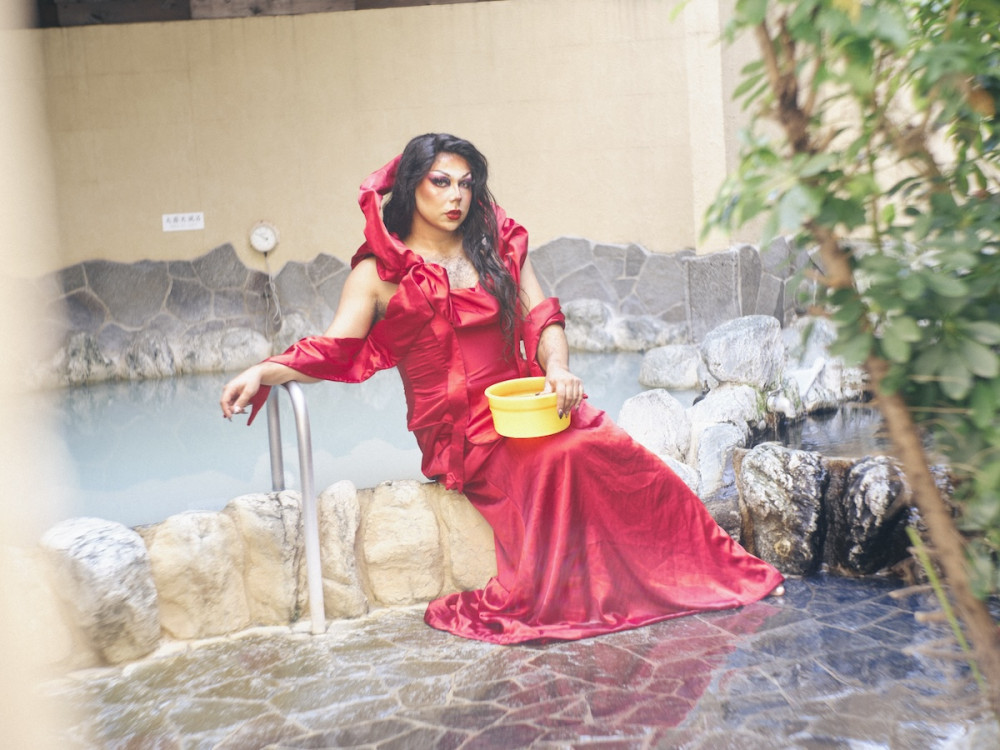
(Photography: Miri Saito, courtesy of Oshiage Onsen Daikoku-yu)
Early Life Across Continents and Prefectures
Born in Brazil, Labianna moved to Japan when she was three years old. Her great-grandparents emigrated from Okinawa to Brazil and Labianna is of Okinawan, Portuguese, Spanish, German, Italian and indigenous Brazilian descent.
Her journey in Japan began in the countryside of Fukui Prefecture, where she was part of the local Japanese Brazilian community. She returned to Brazil for three of her formative years, then spent a period in Aichi Prefecture. She later pursued university in Kanazawa and spent a semester abroad in China.
By then, she had already started shaping her career path around sexual health and education. “I’ve always been interested in health, but I realized that the way we talk about sex—if we talk about it at all—is often lacking,” she says. After graduating, she returned to Aichi to work in an ophthalmology equipment company. She aspired to establish a career in the healthcare industry.
Her journey into drag began when the monotony of corporate life began to stifle her creativity. “I was not only bored of the repetitive adult life but was also struggling with my identity.”
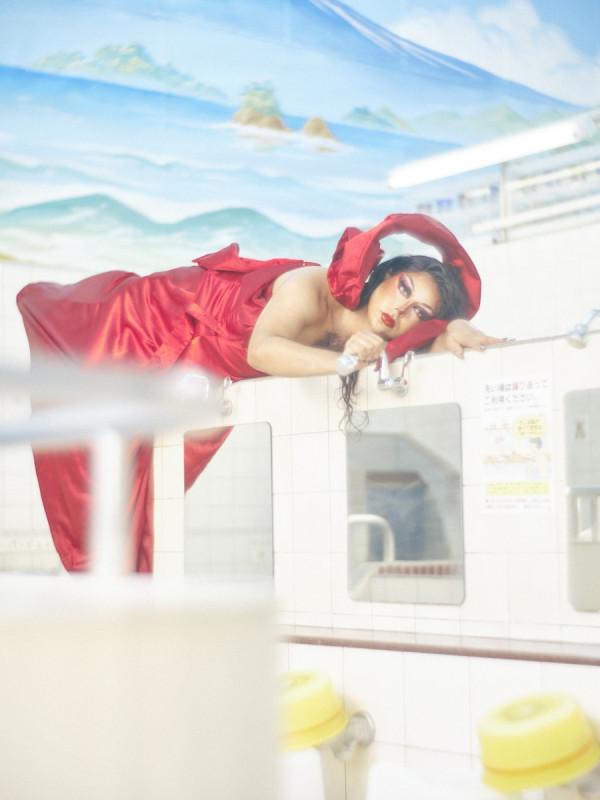
It was Halloween of 2017 that sparked her career as an artist when, on a whim, she decided to try out drag just for fun. Adorned in Don Quijote makeup, Labianna ventured into queer nightlife. It was to become an experience that ignited her passion for drag, setting the stage for her official debut the year after.
Nagoya’s nightlife is famously vibrant and international. More than 61,000 people in Aichi Prefecture identify as Brazlilan, contributing to the prefectural capital’s culture. Immersed in this, the performer made her debut at Metro Club Nagoya, a popular international queer party.
“The community in Nagoya was incredibly supportive from the start,” she recalls with warmth. However, in 2020, she decided to relocate to Tokyo.
The Vision Comes Together: A New Chapter in Tokyo
Labianna’s move to Tokyo was driven by a career pivot to the sexual wellness industry, after securing her dream job at TENGA Healthcare. The company specializes in sexual wellness products and services, with a strong emphasis on innovative technology developed in collaboration with medical professionals.
This new chapter set the perfect environment to further her drag career while working in the industry she was truly passionate about.
Fusing Drag and Sexual Education
Labianna’s background offers a unique perspective on the state of sexual education between Japan and Brazil. Frankly speaking, in most parts of the world, sex education is not sufficient and Brazil is no exception. However, in Japan, she observed an even greater deficiency in practical sex education. For example, she notes that condoms and safe sex practices are rarely discussed in schools.
Sexual education is often still seen as a lesson in reproduction. However, it is about much more. It covers crucial topics like consent, STI prevention, contraception and other aspects that impact our overall well-being throughout life.
Outside of reproductive mechanisms, the criticism of current sex-ed in Japan is not about how it is taught or the details of the content, but the lack of discussion.
“These conversations are crucial and they are inseparable from other issues like mental health and future planning. But they’re not happening enough,” Labianna laments. Topics like queerness and human sexuality beyond reproduction are overlooked in education. It’s a gap that is reflected in society’s attitudes and understanding.
Labianna is aware that these topics are still, unfortunately, considered “sensitive” to discuss.Eeven when they do get mentioned, are frequently dismissed as boring or overly strait-laced. Addressing this problem directly, she ingeniously integrates sexual wellness into her drag performances to make the subject more approachable and engaging without being too confrontational. “For example, I use rap to talk about sexual consent and use music to spread awareness about HIV,” she explains.
“I believe that art can be a powerful tool for education, especially when
it comes to often stigmatized subjects”
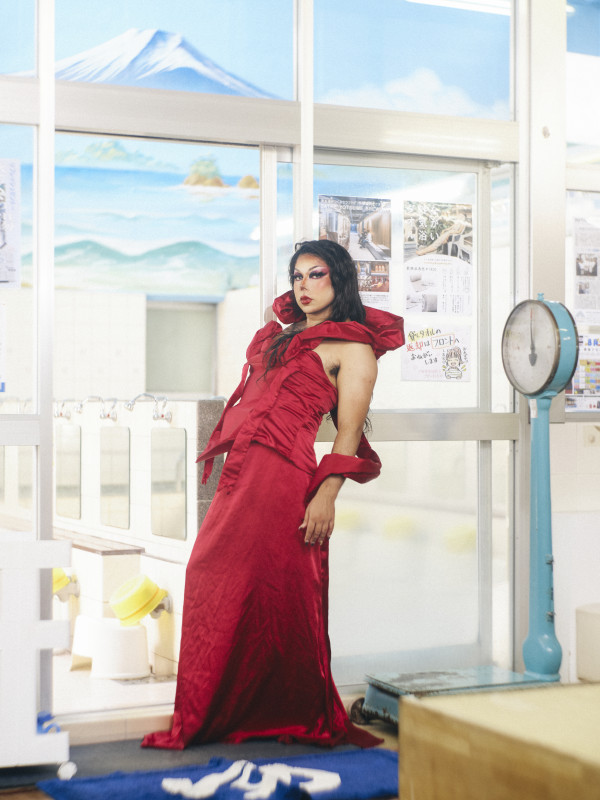
Instead of delivering a one-size-fits-all message, she hopes her performances trigger people to start the conversation about sexual wellness more casually.
Meanwhile, Labianna maintains an academic approach to her performances to ensure they are not dismissed as mere entertainment. She often bases her work on UNESCO’s sexual education guidelines and stays informed through academic research and current news.
She has recently departed from TENGA to pursue a career focused on counseling and education, while also dedicating more time to her drag performances.
Tokyo’s Evolving Drag Scene
While she has only been in Tokyo since 2020, Labianna has already become a leading figure in Tokyo’s drag scene. Drag culture has been prominent in Japan since the post-war times, with legends like Akihiro Miwa emerging in Tokyo’s queer culture landscape.
The Japanese drag scene, as Labianna sees it, has evolved significantly, particularly with the increased visibility brought by RuPaul’s Drag Race. “It’s almost like there is a clear divide between the two eras: before and after the boom.”
While she appreciates the spotlight that the TV show has cast on the art of drag, she also critiques its impact. “There’s a monolithic image of drag that doesn’t always reflect the diversity within
the community, such as the body image and femininity,” she notes. Some critics argue that the show’s Western-centric view can influence and overshadow local queer scenes globally.
At the same time, Labianna herself deals with challenges like xenophobia and cultural expectations in the Japanese queer space. This has given her a more nuanced view of the industry’s struggles.
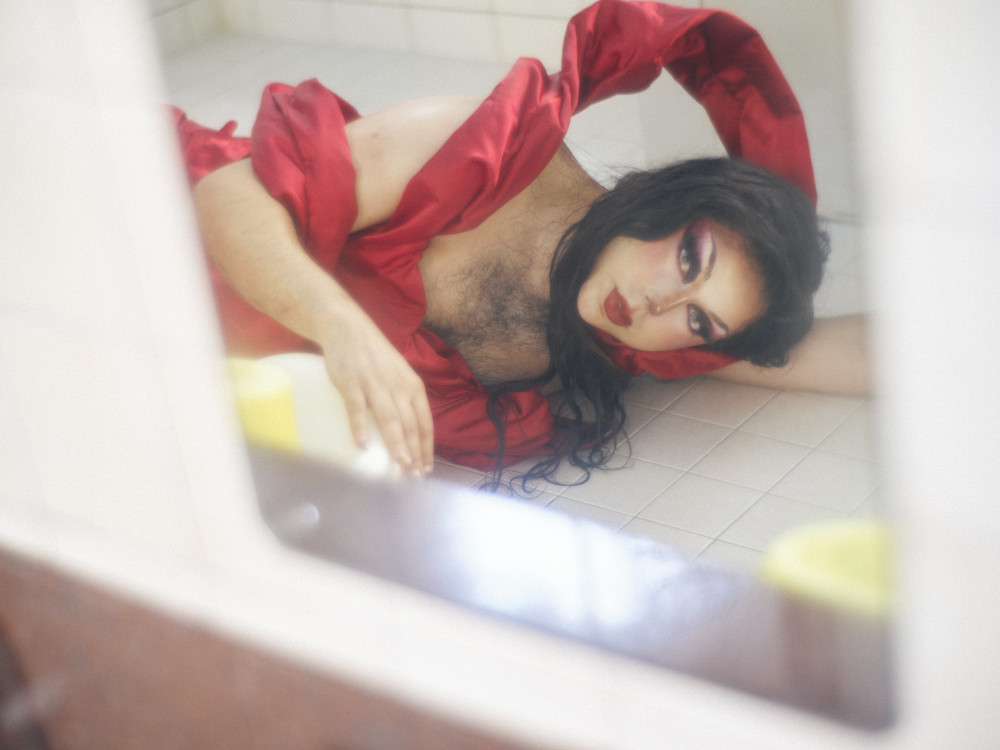
(Photography: Miri Saito, courtesy of Oshiage Onsen Daikoku-yu)
Looking Ahead
At the time of this interview, she is in the serene countryside of Karuizawa for a three-month art camp. She hopes this experience will fuel her creativity as she prepares for an exciting new project: a national tour across Japan in 2025.
Tokyo, unsurprisingly, gets most of the attention of Japan’s queer culture. However, as someone from the Japanese countryside, Labianna hopes to shine a spotlight on the queer communities across the entire nation.
This vision extends far beyond simply performing in different locations. It reflects her desire to make sexual wellness more accessible and inclusive. In Shinjuku Nichome, Tokyo’s well-known queer district, services like drop-in STI testing are woven into the nightlife scene. They provide crucial support to the community*. However, such resources are not as common in rural Japan. With her influence, Labianna hopes to extend these essential services beyond Tokyo.
*Local health centers (hokenjo) across Japan frequently provide confidential and anonymous testing services for HIV and other STIs without charge. These tests are often available at specific times during the week or month. Results are typically given in person, sometimes within a few days or up to a week. Contact your local hokenjo for more information.
Performing in multiple languages—Japanese, Portuguese, English and Spanish—Labianna connects with a broad audience. This includes the Brazilian community in Japan.
As we conclude our conversation, Labianna’s enthusiasm for her roles as performer and educator was clear. Her journey, marked by personal and professional evolution, highlights a commitment to breaking down barriers and fostering an understanding of sexual wellness.
For more on Labianna’s upcoming projects and performances, follow her on social media and catch her shows across Japan.
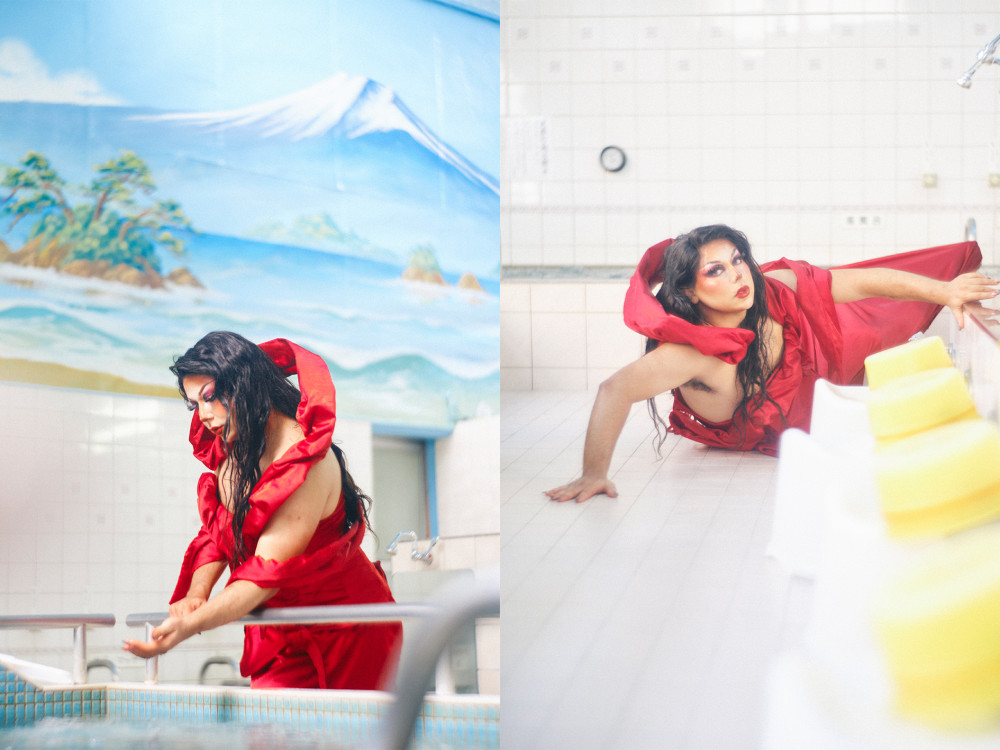
(Photography: Miri Saito, courtesy of Oshiage Onsen Daikoku-yu)
Photoshoot Location:
Oshiage Onsen Daikoku-yu
Bathe in real onsen waters for the price of a sento. There are also saunas, cold baths, wooden decks and a cafe. The open-air bath is available for men on odd-numbered days and women on even-numbered days, while the carbonated spring bath follows the opposite schedule. Established in 1949, the spa blends a modern atmosphere with a traditional interior. The sento is tattoo-friendly!
Open : 15:00-10:00 (Weekdays), 14:00-10:00 (Saturday), 13:00-10:00 (Sunday&Holiday)
Closed : Tuesdays
https:/www.daikokuyu.com/english
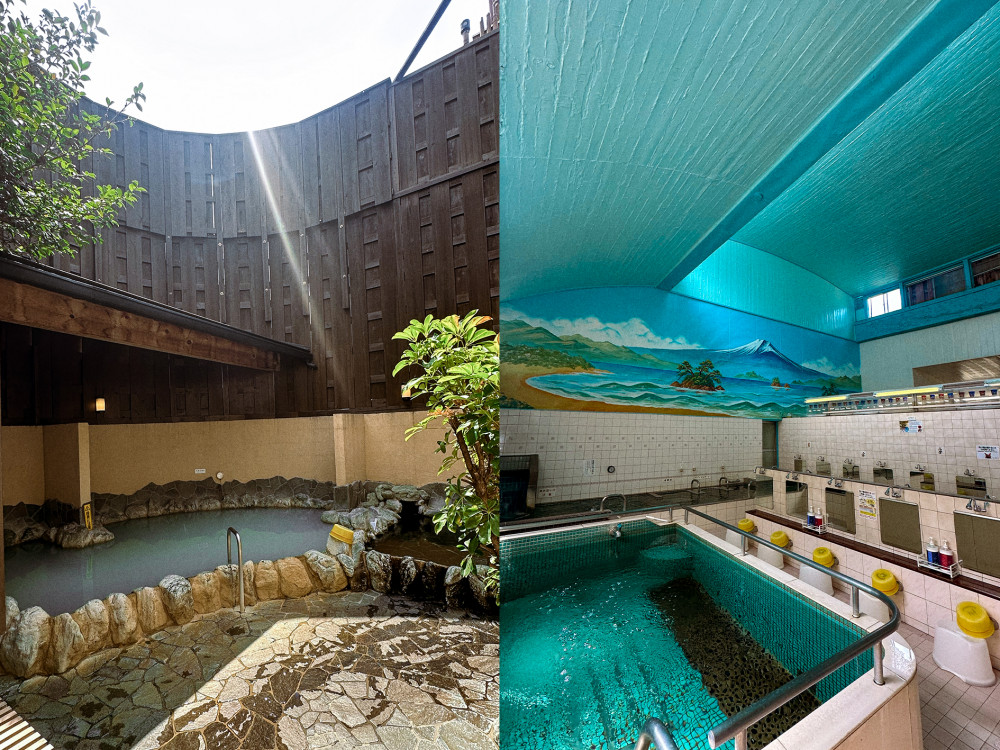
Check out other tattoo-friendly sento with saunas in Tokyo!
You might also like our interviews with:
